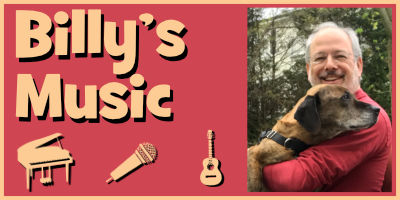Read A New Book, Think A New Thought, Make A New Friend
Twenty eight years ago, I moved to Cleveland, Ohio, where, for six years, I served as one of the rabbis at Anshe Chesed Fairmount Temple. I was fortunate to be there while their emeritus rabbi, Arthur Lelyveld, was still alive. Besides having been a giant in the civil rights movement, Rabbi Lelyveld was a kind and brilliant soul. I loved that, each spring, he would wish the kids a good summer by assigning them homework. With a twinkle in his eye, he would challenge each of them to “Read a new book. Think a new thought. And make a new friend.”
I loved those words so much that I resolved to carry on the tradition. Now completing my 22nd year at Woodlands Community Temple in White Plains, New York, the religious school kids may not remember that I always tell them I learned this from Rabbi Lelyveld, but they all know what their summer homework is before I tell them.
I thought I understood Rabbi Lelyveld’s lesson, but recently I got schooled all over again.
A few days ago, I happened to look outside the front window of my home and saw a man walking down my street. I didn’t recognize him which surprised me because, when you own a dog as I do and you’re walking him around your neighborhood multiple times each day, you kind of get to know everybody.
A while later, I saw the man again and I wasn’t proud of what I was thinking. He had a foreign look to him and as he appeared lost in intense thought. I became concerned about this stranger walking in my neighborhood, and either because of that or because I was horrified that I was judging him simply based on his physical appearance, I resolved right then and there to see what I could find out.
I walked outside and approached the man, saying hello and hoping I was neither unsafe nor too transparent in my suspicions.
For the better part of the next hour, he and I stood in the street having a wonderful conversation during which he told me about all the cities he was visiting during this first and possibly only visit to America, and inviting me to come stay with him and his family when I someday travel to India. As it turns out, he was visiting my next door neighbors. I was amused and horrified.
So … should I feel terrible that I suspected someone I had never seen before in my life … or should I feel good that I had acted to check things out?
As I think about this, I’m not sure how critical I should be of my feelings. After all, they come and go as they please. What was important here is that I didn’t allow my feelings to have the last word. Instead of reaching any sort of conclusion based upon zero actual data, I chose to acquire more information and, frankly, to act in a better manner than I had thought.
 We’re living in a world where division, suspicion and rancor are having their day. From ethnic tensions to political ones, we’re finding more and more reasons to push ourselves away from each other. And it’s not serving us or our communities very well.
We’re living in a world where division, suspicion and rancor are having their day. From ethnic tensions to political ones, we’re finding more and more reasons to push ourselves away from each other. And it’s not serving us or our communities very well.
Every now and then, however, if we keep our eyes (and our hearts) open, we can learn something that helps us all move forward a little bit.
This past week, an article appeared in Teen Vogue, a rather remarkable publication that has been doing some excellent journalism for young people (and apparently, old rabbis too). The article was entitled Because of Trump, I’ve Had a Conversation With Almost Every Single Person in My School.
The writer, Ziah Ahmed, is an American-Muslim teen activist from Princeton, New Jersey. Realizing he speaks with the same two or three dozen people each day, and that they essentially share the same ideas and outlook on the world as him, Ahmed resolved to burst his own bubble, to expand his perspective and to meet, as it were, the enemy.
For two months, he held 15-minute conversations with 237 members of his high school community, including his fellow students and teachers as well as the custodial and kitchen staff. He asked questions like: If you could change one thing about our school, what would it be? What is your greatest hope, for you personally and for the world at large?
While points-of-view differed widely, including those who told this immigrant from another country that the greatest problem facing America today is immigrants from other countries, what became clear to him were the similarities across the spectrum. People want to be happy, free, and safe.
Ahmed’s conclusion was that we need to communicate more with each other. We need to know what makes people happy, sad, frightened, content. And we need to empower one another to want to communicate.
I couldn’t agree more.
There’s a terrific hasidic story in which Rabbi Moshe Leib of Sassov overhears two people in a conversation. One says to the other, “I love you.” But the other objects, saying, “If you really love me, tell me what’s hurting me.” Rabbi Moshe Leib would teach, “This is a profound lesson. No one really loves a neighbor until we know what causes them pain.”
So go do your summer homework. Only this summer, make sure to “make a new friend” from someone who’s not at all like you, someone you wouldn’t otherwise talk to. If you do, you will likely be quite surprised at how not dissimilar they turn out to be. And on top of that, you may be doing a mitzvah by making room in your world for someone who’s consistently being pushed out of others’. In this way, I think we’ll begin to find the solution to the divisions, the suspicions and the rancor that are currently having their day.
I am consistently amazed by how much I still have to learn about becoming fully human. This past week, meeting my neighbor’s visitor, I took another important step in my education. I’m pretty sure I’m a better person for it.
 There’s another story that’s told about Rabbi Moshe Leib of Sassov. One night, with a heavy snow falling outside, Moshe Leib heard someone tap at his window. Looking up, he saw a strange man dressed in tatters, with cuts and bruises on his hands and face, and a gleam of madness in his eyes. Hesitating only for a moment as to whether or not to allow such a man into his home, Moshe Leib thought, “If there is room for a person like that in God’s universe, surely there is room for him in mine.”
There’s another story that’s told about Rabbi Moshe Leib of Sassov. One night, with a heavy snow falling outside, Moshe Leib heard someone tap at his window. Looking up, he saw a strange man dressed in tatters, with cuts and bruises on his hands and face, and a gleam of madness in his eyes. Hesitating only for a moment as to whether or not to allow such a man into his home, Moshe Leib thought, “If there is room for a person like that in God’s universe, surely there is room for him in mine.”
And with that, he opened the door and invited him in.
I hope we can learn to open ourselves to experiencing the beauty that resides in our fellow human beings, to quiet the discomfort that is churned up by our smaller selves, and to find the kindness (and the courage, if we need it) to stop for a moment, to approach the person who doesn’t seem like they’d be a candidate for friendship, and to start the conversation by simply saying, “Hi. How are you today?”
Billy
P.S. The Jonah Maccabee Foundation is finishing up its Summer Campaign ’17. We sure would appreciate your donation. Stop by jonahmac.org/donate anytime. Thanks!

Stephanie
Thank you for reminding me of that wonderful childhood memory. I’m so grateful for our time with you at Fairmount.